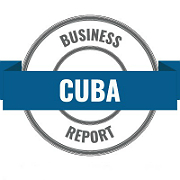Property claims against Cuba are quite the “thorny” issue and a significant part of the ongoing discussions between Cuba and the US. Josefina Vidal, head of U.S. affairs in the Cuban Foreign Ministry called the compensation discussions “an extremely complicated subject.”
The expropriation of private property is considered legal in terms of international law if done for reasons of national welfare. Expropriated property during times of turmoil is not always returned to the owners. There are also situations which exist where the original owners of confiscated/ nationalized properties have been compensated.
William LeoGrande, a specialist in Latin American politics at American University and the author of “Back Channel to Cuba: The Hidden History of Negotiations Between Washington and Havana,” stated in an interview with NewsWeek magazine that, “under international law, this is a matter of Cuban governmental sovereignty… they used their power of eminent domain to nationalize the property of Cuban citizens and — legally speaking—”it’s none of the U.S.’s business.”
The U.S. is claiming compensation for a total of approximately $7 billion for nationalized businesses, stocks and personal property. There are already problems in identifying claims. In Cuba, many properties are no longer in existence having crumbled into ruins over the years. In some cases, businesses no longer exist in the U.S. or the original property claimants have died. Other properties were acquired from the proceeds of crime in pre-revolutionary Cuba.
For example, does a government, as the U.S. often does, have the right to confiscate property that was built from the proceeds of crime? e.g., a property owned or acquired by criminal elements operating in Cuba pre-1959? This will be very challenging for negotiators to assess “who gets what.” The compensations discussions are closely tied to ending the American embargo against Cuba.
Cuba originally offered compensation payments (including the U.S.) for nationalized properties and businesses in 1959 in the form of “20-year fixed-term government bonds paying an annual interest rate of 4.5 percent… Britain, Canada, France, Italy, Mexico, Spain and Sweden accept the compensation, but the USA did not.”Source.
Let us not forget: also up for discussion at the same time is a compensation claim by Cuba for the economic damages caused by the 54 year old blockade. Cuba is claiming approximately $117 billion in compensation for the human cost and economic damage caused by the embargo.
Soon after Fidel Castro came to power, his government seized the refineries, hotels and sugar plantations that were the most visible signs of the American hold on the island’s economy.
But a look at long-unsettled claims for what was taken shows that many of the Americans who lost out were individuals and families rather than corporations. And much of what was seized, while of limited value in dollars, was sometimes dearly prized.
Nearly 90 percent of the Americans who filed claims for confiscated Cuban property were individuals, according to a Creighton University study commissioned by the U.S. Agency for International Development.
“They left behind all kinds of stuff — stock, life insurance policies, artwork, cars,” says Michael Kelly, a Creighton law professor who participated in the study, released in 2007. “Those ’57 Chevys driving around? You know, one out of three of those probably has a claim attached to it. …That’s going to be a huge problem to unwind.”
About 5,900 American claims for confiscated property were certified by the federal Foreign Claims Settlement Commission. Though originally valued at nearly $1.9 billion, adjustments for inflation in the years since mean they are today worth $7 billion or more.
Some of the losses were very large. The American-owned Cuban Electric Company lost power plants worth $268 million, a claim now held by retailer Office Depot Inc. as a result of mergers. International Telephone and Telegraph Corp.’s losses totaled $131 million. Exxon’s losses, including a refinery, topped $71 million.
But about eight in 10 of the claims for lost property were valued at $10,000 or less by the FCSC, which over the years has also fielded Americans’ petitions for property seized in Iran, Vietnam and the Soviet Union. Such claims are covered by international law, which is generally understood to bar governments from taking the property of foreign citizens or companies without compensation.
About 70 percent of the Cuban claims were for stock. But many involved land or other real estate, with most of that either in Havana or on the former Isle of Pines, off Cuba’s southern coast and once home to a large American population. Other claims listed lost pensions, bank accounts and personal property like jewelry and furniture.
When Creighton professors traveled to Cuba nearly a decade ago they went searching for confiscated properties including buildings that once housed a university and a clinic run by a Catholic order of friars.
“There’s almost nothing left of it. You can just see half-knocked down walls at that corner,” says one professor, Patrick Borchers. “So there’s just no going back.”

From our staff writers and editors.










